The Bourne franchise returns, minus its regular director and main star. Can the winning formula be revived, or is this film a pale shadow of former glories?…
“The Bourne Legacy” is a franchise film in every sense of the term.
While it bears little resemblance to the book it’s based on, that is of no consequence to Hollywood since what matters most is the brand name value. The same thing could be said of “Legacy” in relation to the rest of the cinematic series. Gone are its stalwarts, the fruitful director-star pairing of Paul Greengrass and Matt Damon. Ordinarily, this would spell the end of a franchise, when its key creative people decline to be involved any longer. Still, Universal Pictures was determined to return to the well, convinced that the formula could not just survive but thrive with change. As far as the studio is concerned, the property’s name is bigger than any one person; so just hand it over to someone else who can manage it. That’s the very essence of a franchise.
Of course, it helps to retain at least some of the original creative DNA. In that, Universal has ace-in-the-hole of sorts, screenwriter Tony Gilroy. He wrote all three of the previous “Bourne” movies, and this time he’s lent his services as a director as well. More so than the series’ past directors (Doug Liman helmed the first), Gilroy has a deep understanding of the Bourne universe, and one could argue, a better appreciation for it. He knows what makes these political animals tick and how they operate. It doesn’t necessarily make him a better director though. Gilroy’s strengths are still much more evident on paper than they are on screen.
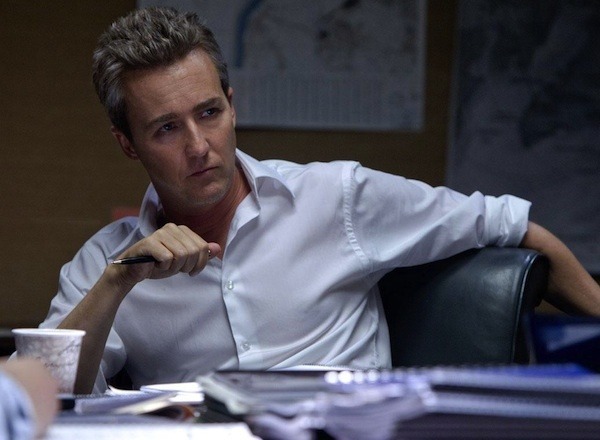
“Legacy” suffers from the typical writer-turned-director’s disease of telling more than showing. It’s a film filled with lots and lots of characters explaining stuff and talking about stuff that we never get to see. This has got to be one of the most exposition-heavy films I’ve seen in a while. And yet, Gilroy’s way with words means that the dialogue is at least smart and snappy. It’s not as razor-sharp as say, David Mamet on his best days, but Gilroy does imbue his characters with a sense of authenticity and where it’s required, authority. You really feel like you’re listening to closed-doors conversations of covert government agents. As a writer, Gilroy makes the drama almost as absorbing as watching an action scene.
As a director however, he doesn’t deliver quite enough impact in the action department. Or for that matter, enough action at all. I could tell a lot of the action staging was delegated to his stunt coordinator Dan Bradley, who’s an old hand at such matters. The problem is, when you leave things too much to your 2nd Unit team, the film starts to lack a singular vision. The best directors have a strong grip on all areas of their film. What little there is of the action set pieces are entertaining enough, but feel a bit workmanlike, perfunctory. Not to mention slightly derivative of the past films.
Another problem is that the ending that we’re left with doesn’t feel like a proper resolution, rather, more like the end of the 2nd act in the traditional 3-act structure of a film. There’s a great setup for a man-to-man showdown between the hero Agent Aaron Cross, and a rival operative from a newer, more advanced program sent to kill him. It never follows through. And then, the film wraps up while hinting at more developments to come. Now, I’m all for building a broader mythology, but any story must be self-contained enough to justify its telling. Here, the story feels truncated.
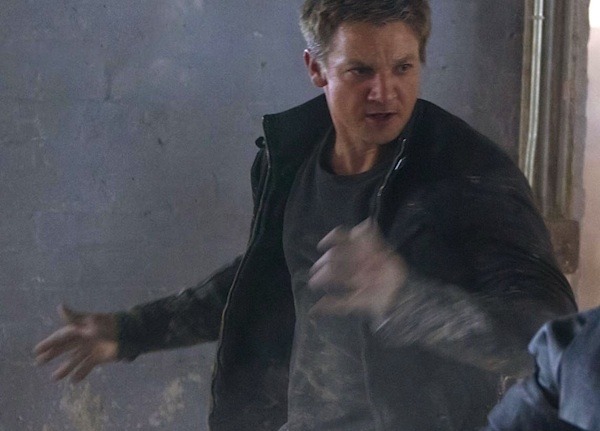
Speaking of mythology, this is one in a handful of things I liked about “Legacy”. For all the problems of not having Matt Damon return as the title character, they found a credible way around it. This isn’t so much of a sequel as it is a sidequel, a story set in parallel with the events of the last film. What happened in “The Bourne Ultimatum” is used as a jumping off point for a whole new story with totally different characters and stakes. The cool thing is that doing a “Meanwhile” sort of context opens up the universe and makes it far richer, without betraying what came before. It’s a clever way to further the Bourne franchise.
I just wish they had given Cross a better motivation. Part of what made Jason Bourne so compelling was that his mission was deeply personal. Not for Queen & Country like James Bond. In “Identity”, he was driven by the need to find himself. Then in subsequent chapters, the desire for both vengeance and penance. Simple, yet relatable. And powerful. Bourne was ultimately a tragic figure, so it was easy to empathise with him. I’ve come across criticisms that this film suffers because its leading man is less watchable than Damon, but I disagree. In terms of looks, these operatives are supposed to blend in with a crowd, and Jeremy Renner has that everyman quality down pat. That’s a compliment, by the way. His is just not as emotionally engaging a character due to the way it’s conceived.
Cross has no real personal motivation. Here they’ve made the the agents’ skills the result of genetic manipulation, delivered via a combination of pills. It’s a slightly odd idea but once the science behind it is explained, it makes sense. The problem is, Cross’ sole ambition is to stay on his “chems”, which pretty much makes him just a junkie in search of his next fix. He doesn’t even seem overly angered that his masters are trying to kill him (due to complications brought on by the events in “Ultimatum”). It turns out that the pills also enhance intelligence, and before he signed up, Cross wasn’t too bright. So he’ll do anything to prevent losing the heights he’s attained. Still sounds like a drug addict, but there is something poignant in being painfully aware of your limitations. Had they played this up, Cross would’ve been a much more sympathetic character.
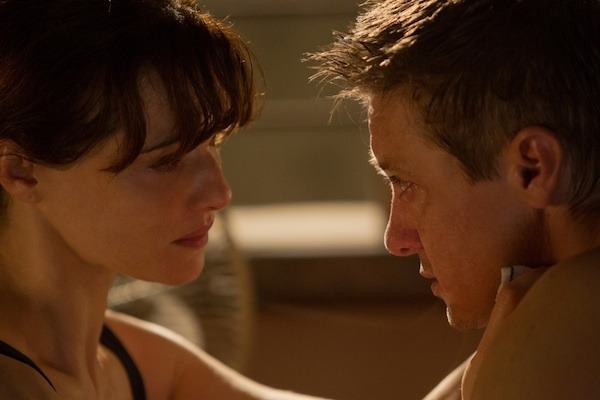
As it stands, Renner makes do with what he’s given. For all the claims of Project Outcome being far superior to Bourne’s Project Treadstone, I don’t see much evidence that Cross is a better fighter. Bourne was shown constantly taking on — and defeating — fellow assassins, while Cross’ adversaries consist of security guards and regular field agents. Still, Renner does come across like he’s not to be messed with. I’m just not sure he’s leading man material. I’ve liked him since his memorable turn in “28 Weeks Later” and he’s always struck me as a very good character actor. He has a certain unpredictable quality which suits a role like this, but I think Renner is best when used in smaller doses, such as supporting parts.
Edward Norton on the other hand, is always a welcome presence in any role, small or big. What I like about his performance here is that he does not do an outright villain, a choice many other actors would no doubt make with what’s on the page. His Col. Byer, the mastermind behind Outcome, is written with some shades of grey but is also very broad, a super-patriot stereotype. Norton plays it just about vague enough to get us believing what he does is genuinely for the greater good. Rachel Weisz has a slightly thankless role, as she’s called upon mostly to alternate between being Dr. Exposition and Miss Hysterical. Luckily, she’s gorgeous so that kind of compensates. Hey, call me shallow.
Another thing I enjoyed seeing was the Manila location, which serves as the backdrop for the finale. This chaotic, messy mega-city is photogenic in a charmingly grungy way, and adds to the real-world aesthetic of the Bourne series. The Philippines is seldom captured on the big screen by Hollywood, so there is also novelty value for audiences who’ve never been there.
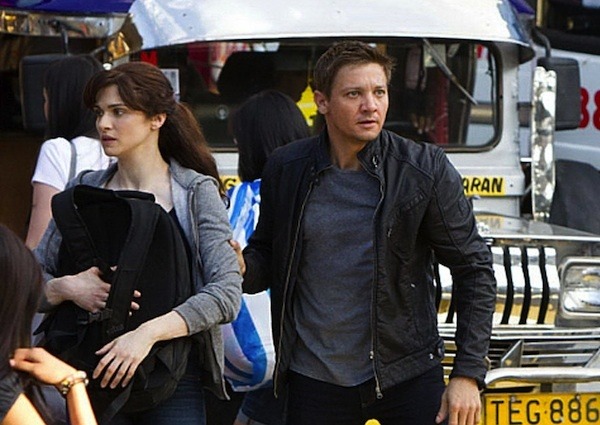
Too bad that refreshing sensation doesn’t extend to the belaboured plot and hum-drum action. If this is to be a franchise restarter, Gilroy and company need to give us an experience that’s a bit more special than this. While I’m no big fan of the way Greengrass handled the action (my favourite instalment remains the first one), on the whole the previous trilogy has left some pretty big shoes to fill. I believe that Renner can grow into the Aaron Cross role, and with stronger storytelling this could turn out to be a worthy trilogy in its own right.
For now, “The Bourne Legacy” gets things off to a decent if unspectacular new start. The best thing I can say about the film is that it’s clearly not a cynical cash-in because everyone involved actually cares about what they’re doing. The next time round however, they won’t be able to rely on the brand name anymore.
Unless they bring back Bourne himself, it’ll get progressively harder to justify his name in the title, franchise or not.

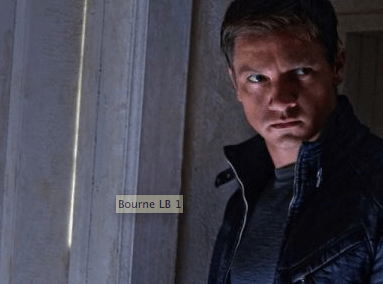
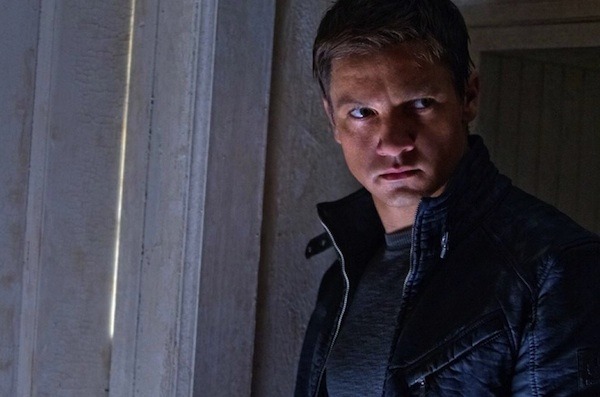
Hi Mr. Eko. I'm guessing you're a fan of TV's "Lost". Agree about the lab scene. As for bringing back Matt Damon, there has been talk of his return to the franchise in the next instalment. That is still just talk at this point, but keep your fingers crossed. Thanks for writing!
Watched this last night and what a failure to live up to Matt Damon's trilogy. Jeremy Renner just doesn't have what it takes to be a star, like you said. Boring action too. Only good and tense part is the massacre in the lab scene. Very intense man! Bring back Matt!!!